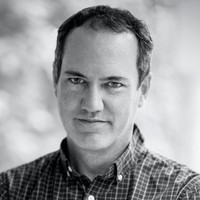The Age of Mechanical Reproduction
An essay on a pregnancy attempted:
When I tell people what we are doing, they want to hear about the room where you produce. I tell them that there is a lot of paperwork. That they take your picture and look at your license. Then they walk you back to the room. You are handed a list of instructions and some stickers and a plastic cup. The cup has a forest-green lid. In the room is a VCR. I like to write down the names of the videos so I can share them with my wife and friends: Ass Angels #4, Original Black Queens of Porn (Afro-Centrix #113), and Chock Full of Asians. The latter features a woman with enlarged breasts so swollen they look luminous, like the sense apparatus of a recently discovered deep-sea fish.










